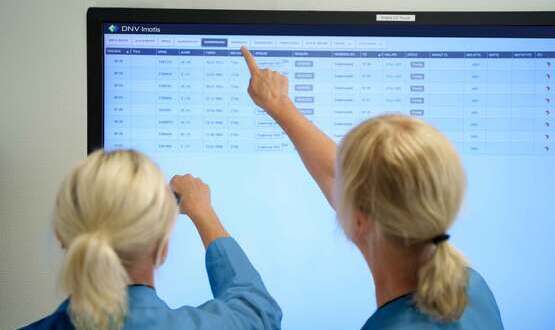CCIO event report – The power of collaboration
- 31 March 2014

Speaking to a range of individuals interested in healthcare informatics, Dr Jonathan Harness offered a compelling mix of passion and despair.
The passion was for the benefits that better information sharing could bring to patients, clinicians and healthcare organisations. The despair? That failure to collaborate means those benefits are rarely realised.
“Our clinical information systems are often isolated – developed in silos to meet the needs of a service rather than the needs of the service, and not necessarily to meet the needs of patients.
“But not only are our systems isolated, so too is the way we work,” argued the clinical lead for health informatics at NHS Gateshead Clinical Commissioning Group. “There is still duplication of work; we are still working in silos.”
Shared conversations, held in silos
The event at which Dr Harness was speaking was an attempt to counter that. ‘The power of collaboration’, held last week in County Durham, brought together six, separate informatics networks.
Event chair Dr Jonathan Richardson said the idea was “to get a wider understanding of other colleagues, the key challenges, the key risks, and the key decisions we will have to make.”
“It’s a chance for extending networking,” he added, “and a chance to think about shared projects.” There was widespread agreement that such opportunities were desperately needed.
During a mid-morning breakout session, at which delegates were charged with considering how best to collaborate, one group offered a simple but important insight: “Everyone’s having the same conversation. But we need to have the same conversation together.”
It was a point echoed by Professor Jonathan Kay, clinical informatics director at NHS England. “It we’re all going to climb these learning curves individually, it’s going to be very difficult,” he argued. “We need to learn from others.”
Professor Kay suggested that the body for which he works may not be best placed to create that sort of environment. “It really is very difficult for NHS England because the health service is so fragmented,” he suggested.
“If one bit of this highly fragmented landscape is doing well, we have to share that. We can’t [impose a specific way of doing things] from the centre.”
Bringing networks together
This is an understanding that appears to have been taken on board in the North East. The number of networks represented at the event was impressive, as was their breadth.
Dr Richardson spoke of the North East Clinical Health Information Network (CHIN) “which has been going for three years, has over 300 members, and has met six monthly with about 70-80 people in attendance.
“We encourage any clinician to attend,” he continued, “but we have also opened the group up to patients and carers and suppliers. The idea is to act as a body of informed, interested clinicians and colleagues who could take forward some of the [informatics] agenda.”
Rose Curry explained how the iNurse network had sprung from CHIN, following the identification of a need to specifically support nursing staff. “Nurses often feel like a fish out of water using technology to support safe care,” she argued.
Highlighted too was the regional presence of national networks, namely the EHI CCIO Leaders Network and the Health and Social Care Information Centre Clinical Safety Network.
The latter was represented by Jane Doris, a practising midwife, who explained that: “Years ago I used to go to user group meetings. I found out that issues that I’d had with a system for years other people had cine across as well.
“They didn’t know and I didn’t know. So it is very helpful to be able to share information through networks.”
“Willingness to share is paramount,” suggested Mark Thomas, chair of the North East Health CIO Network. “Are we prepared as organisations to say ‘this didn’t work’? Seldom we are. It is a real shame when 12 other organisations do the same and have the same problems.”
He continued: “We need to look outside of our own organisations, because each organisation is only one part of the system. Everybody needs to sign up to this – we need collaboration without walls. We are all going in the same direction: how do we communicate?”
Lots of questions, looking for answers
It was clear that in this context that ‘organisation’ could and should be used to mean ‘network’ as well as ‘individual trust or CCG’. It was the lack of communication between organisations in the broadest sense of the term that Dr Harness focused his despair.
As well as being clinical health lead for health informatics at NHS Gateshead CCG, the GP is chair of the Gateshead Information Network (GIN).
While he was proud of the progress the group has made over eight years – and the fact that it includes both health and social care organisations as well as the council and patient representation – he admitted to still feeling immense frustration at the very local nature of that progress.
“We had a two week wait critical incident recently,” he said. “We have a standardised set of referral forms in Gateshead – but so has Newcastle.
“The patient decided to go to the Royal Victoria Infirmary [in Newcastle] rather than the Queen Elizabeth Hospital [in Gateshead]. We put the referral on the Queen Elizabeth form, and it got bounced back. I’m not raising criticisms of any one person or trust – it’s just an example of the problem.
“We’re all reinventing the wheel,” he went on. “How can we work together as organisations more effectively? How can we learn from each other? How can we each identify our priorities and then work together?
“How can we do it on practical day to day basis, when none of us have much time, in such a way that it doesn't grind to a halt? How can we make connections when we all have full diaries?
“I don't know the answers for these [questions],” he admitted. “After each GIN meeting I bang my head against a brick wall because for all the progress I get frustrated by the lack of progress and the slowness of progress. That's not a criticism of an individual or organisation, but of a system that allows this.”
Finding a shared vision
So how can that system be changed? Align with long term condition networks and with social care, because the information systems we want to design are most needed there, suggested one group during the discussion phase of the event.
Another argued it was important to map existing networks to understand where the gaps and opportunities are. Then build a communications strategy which brings together all the information from separate groups and makes it available.
“One of the things we discussed at my table was having a shared vision as a region,” reported Dr Joe McDonald, chair of the EHI CCIO Leaders Network. “That way different organisations can start to work to principles that everyone is considered against.”
Summing up the day’s presentations and debates, Dr Richardson argued that there was a TLC of networks – “transparency, leadership and collaboration.” The event was undoubtedly a good start on the last of those, but there is clearly further to go.




